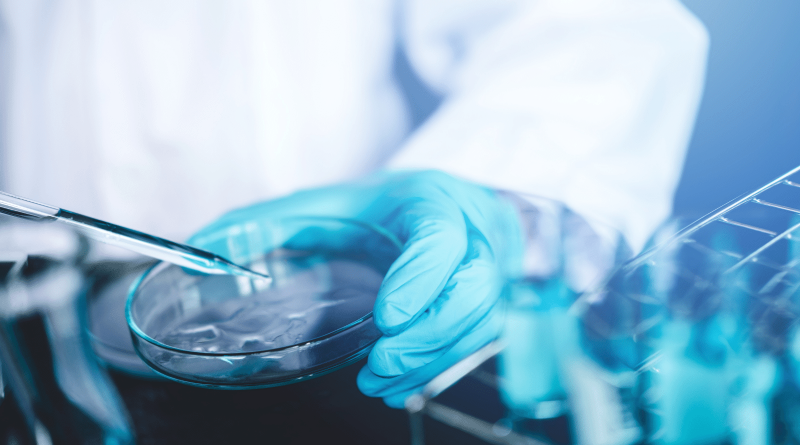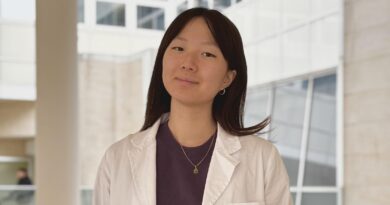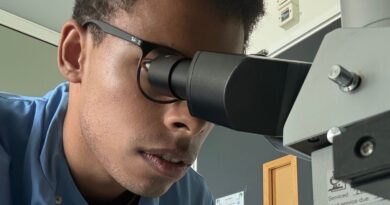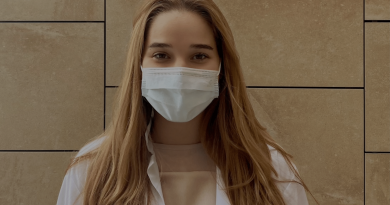Sleeping Beauty – Engineered Cytokine – Induced Killer Cells in the Treatment of Acute Myeloid Leukemia
Background
Chimeric Antigen Receptor (CAR) – T cells are genetically – engineered T lymphocytes harboring a peculiar receptor, the CAR, which allows them to selectively kill cells expressing a specific target antigen (e.g., tumor cells).
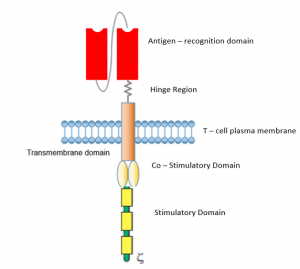 Structure of a CAR
Structure of a CAR
(modified from Murphy, K., Travers, P., Janeway's immunobiology. 2016, New York: Garland Science; Han, Shuanglin et al., Recent clinical trials utilizing chimeric antigen receptor T cells therapies against solid tumors. Cancer letters vol. 390 (2017): 188-200).
To manufacture CAR – T lymphocytes, mononuclear cells are separated from peripheral blood and then stimulated with specific molecules to yield a cell population known as Cytokine – Induced Killer (CIK) cells.
Since the CAR is an artificial receptor, the genetic information necessary for its synthesis needs to be introduced into the genome of CIK cells: this can be achieved by viral vector – based strategies or non – viral gene transfer approaches.
Our laboratory optimized a non – viral gene transfer mechanism known as the Sleeping Beauty (SB) Transposon System, in which an electrical field applied to CIK cells allows for the delivery of foreign genetic material. The latter consists of two circular DNA fragments, called plasmids:
- One of them, pT4, contains the gene coding for the CAR
- The other, SB100X, codes for a transposase, an enzyme that “cuts” the CAR gene from the first plasmid and “pastes” it into the genome of the CIK cell host.
Having been provided with the information to synthetize the CAR, CIK cells can now express it on their surface.
Objectives
The aim of our work was to conduct a preclinical assessment of the antitumor activity of CAR – T cells engineered with the SB Transposon System in mouse models of chemoresistant Acute Myeloid Leukemia (AML). More specifically, our CAR was designed to recognize CD33, a protein expressed on malignant cells in up to 80% of AML cases.
Methods
To create our murine models, we inoculated immunodeficient mice with tumor cells derived from human subjects with AML. This was followed by the infusion of CAR – T cells directed against CD33. The models we worked with were:
- Early Treatment, where mice received three once – weekly infusions of CAR – T cells starting five days after inoculation with the leukemic cells
- AML Treatment, in which the infusions of CAR – T lymphocytes were not begun until leukemic cells had expanded to constitute the 1% of cells in the Bone Marrow (BM) of the mice
- Xenograft Chemotherapy, where mice initially received a cycle of induction chemotherapy and then, at the first evidence of disease relapse, were infused with CAR – T cells.
Results and Conclusions
In all three models, we observed a significant reduction in leukemia engraftment in the BM, spleen and Peripheral Blood (PB) of treated mice, which paralleled the expansion of CAR – T cells in the above – mentioned sites.
Furthermore, we demonstrated for the first time that anti – CD33 CAR – T cells modified with the SB Transposon System effectively target chemotherapy refractory AML cells.
Taken together, these findings support the role of CAR – T cell immunotherapy as a promising treatment choice in patients with chemoresistant AML and in those relapsed after Bone Marrow Transplant.
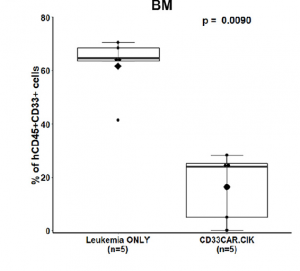
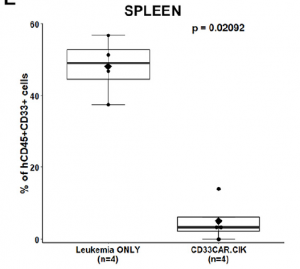
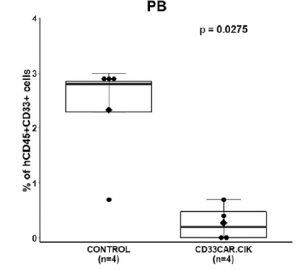
Graphs from Rotiroti MC, Buracchi C, Arcangeli S, et al. Targeting CD33 in Chemoresistant AML Patient-Derived Xenografts by CAR-CIK Cells Modified with an Improved SB Transposon System. Mol Ther. 2020;28(9):1974-1986.
Acknowledgments: Prof. Carlo Gambacorti – Passerini, MD; Prof. Andrea Biondi, MD; Dr. Marta Serafini, PhD; Dr. Sarah Tettamanti, PhD; Fondazione Tettamanti Onlus; Virgilio Program.
Presented at: Virtual European MD/PhD Conference on April 22nd, 2021.
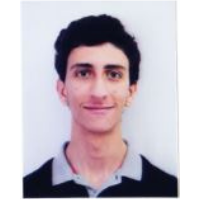 Author: Antonio Maria Alviano – Virgilio Program Student, University of Milano – Bicocca, Italy.
Author: Antonio Maria Alviano – Virgilio Program Student, University of Milano – Bicocca, Italy.
